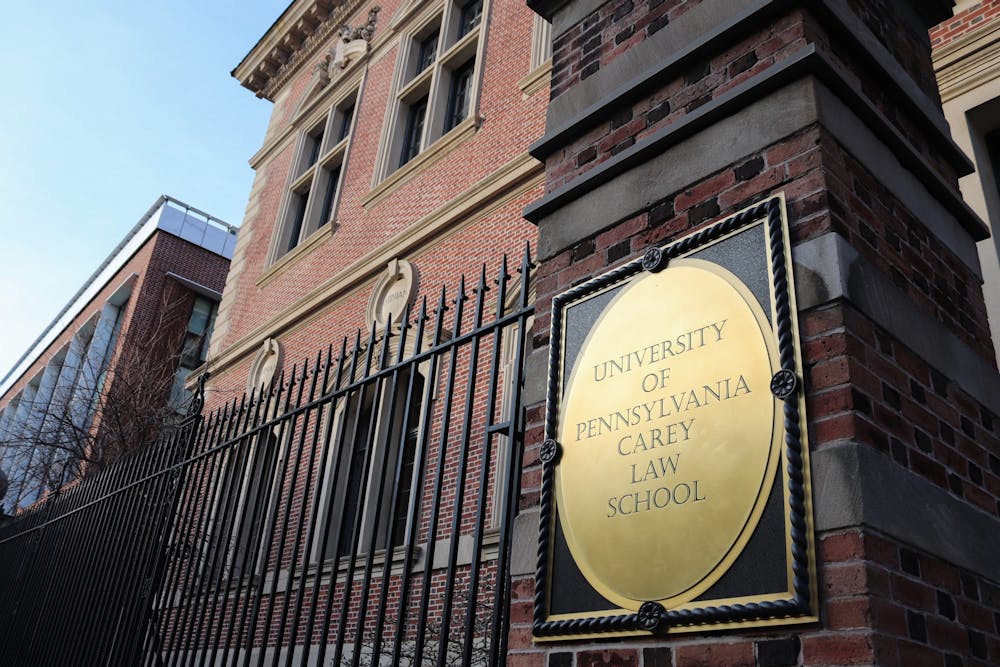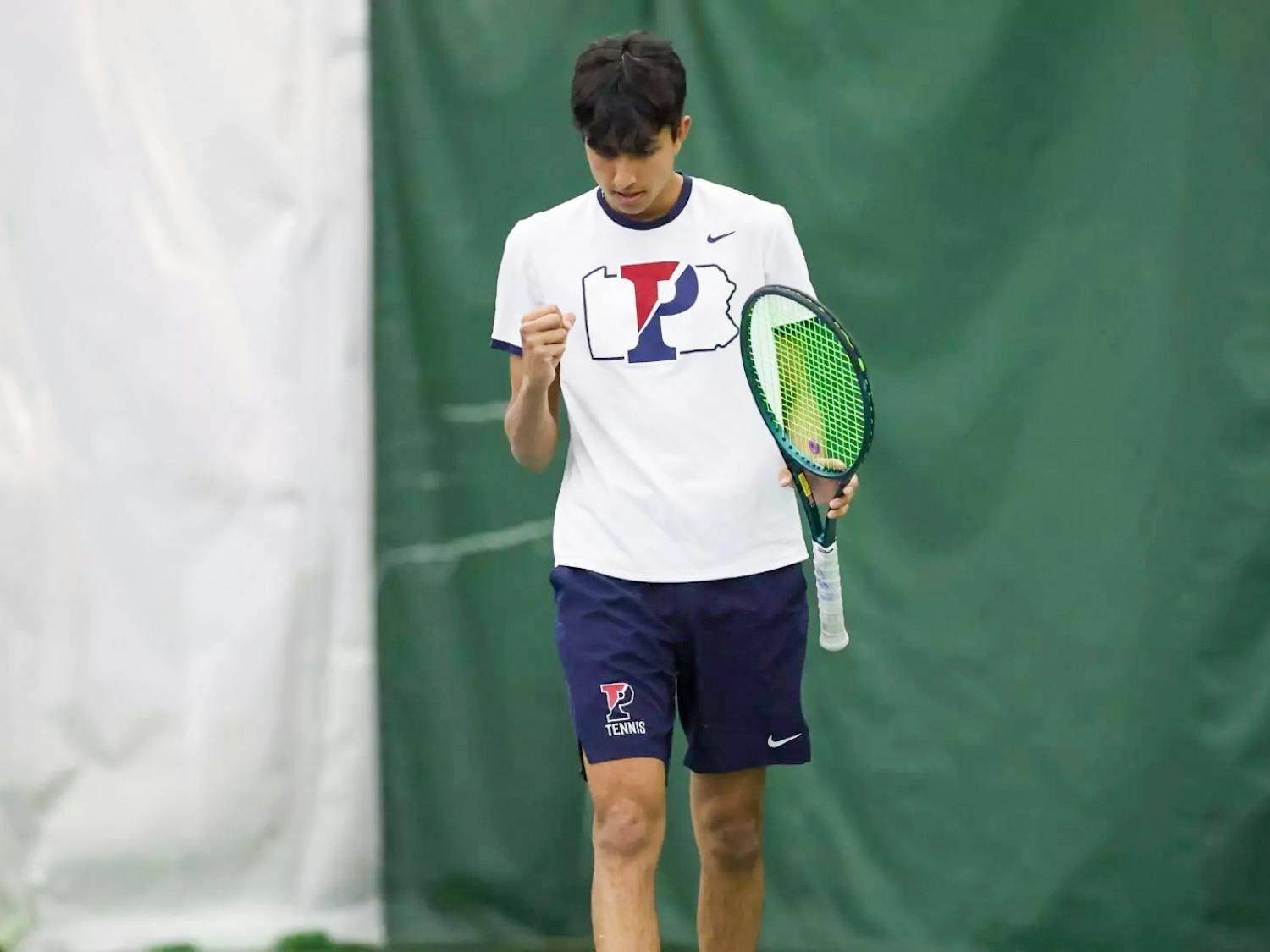Penn Carey Law School has not changed its opposition to the U.S. News & World Report rankings after U.S. News announced changes to how it ranks law schools.
The changes, described in a letter sent to the deans of American law schools on Jan. 2, follow a wave of withdrawals from the rankings late last year by top law schools across the country. Penn Carey Law, which most recently ranked sixth in the U.S. News rankings, described them as “unnecessarily secretive and contrary to important parts of our mission” when it said it would no longer submit data on Dec. 2.
The letter to deans, signed by Chief Data Strategist for U.S. News Robert Morse and Vice President for Data & Information Strategy Stephanie Salmon, cited “conversations with more than 100 deans and representatives” as it acknowledged their concerns and promised changes. In both that letter and a separate one addressed to prospective law students, U.S. News emphasized its journalistic identity and mission of helping students select an institution.
A spokesperson for U.S. News did not respond to a request for comment. A spokesperson for Penn Carey Law wrote to The Daily Pennsylvanian that it had nothing to add from its early December statement, where it announced it would end its participation in the rankings.
“In the interest of greater transparency, we will make relevant data public so that anyone can see the inputs that make Penn Carey Law a leading law school and how our alumni launch careers in every sector of the legal profession,” the spokesperson wrote at the time.
In the Jan. 2 letter, U.S. News addressed many of the concerns raised by Penn Carey Law and other law schools. It promised to place more weight on student outcomes, including employment and bar exam passage, and place less weight on dollar-per-student numbers and assessments from legal professionals, which schools have long criticized.
The letter also referenced concerns about the ranking’s measurements of student debt. The latter is often a concern for students interested in less well-paying public service careers, who law schools argue would be eligible for loan forgiveness and fellowship programs.
Former Penn Carey Law Dean Colin Diver told the DP in December that Penn Carey Law’s identity as a pipeline to public service is well-established, but he felt this was not appropriately recognized by the U.S. News rankings.
RELATED:
Amy Wax's classes see sharp decline in enrollment as Penn's investigation nears second year
Penn Carey Law will end participation in U.S. News & World Report rankings
“We started some programs with financial incentives, we had some public interest scholarships for students who declare their interest, and then we gradually expanded the loan forgiveness programs,” Diver said.
Among the announced changes, U.S. News promised to give “full weight” to university-funded fellowships which funnel students into public service careers like those offered by Penn Carey Law.
The letter also promised to improve the way it considers programs that are designed to eliminate socioeconomic barriers to attendance, like aid and loan programs — addressing a central complaint raised by the boycotting schools, including Penn. U.S. News wrote that it would need “additional time and collaboration to address” these issues.
College senior Ethan Knox recently applied to eight of the “T14” law schools — an expression used to designate 14 schools that have occupied the top spots in the U.S. News & World Report law school rankings for over three decades. Knox told the DP that he chose these schools because of their unique connection to career opportunities.
“Generally, people in the T14 have access to different positions and opportunities that a lot of other people don’t unless they work for years and years, and even then, might not have those same opportunities,” Knox said.
Knox also said that even though he applied before top law schools around the country began withdrawing from the rankings, this would not have changed the schools that he applied to.
Wharton senior Teddy Weng, who plans to apply to law school, echoed Knox’s sentiments. He said that other factors, such as a school’s long-term reputation, access to clerkships, professors’ and famous jurists’ alma maters, and location can be much more influential in decision-making than the U.S. News ranking.
“I think Harvard Law is always going to be Harvard Law,” Weng told the DP. “You can tell me Harvard Law is ranked 14th, but I’m not going to care because so many Supreme Court justices have come from Harvard Law.”
However, universities still place importance on the rankings, in part because of institutional pressure and the perceived importance of where they stand among other universities.
“We felt as though [Judith Rodin, Penn’s president at the time] and to some extent, the Board of Trustees [were] just watching every move we made to see if we improved in our rankings,” Diver said.
For Diver, Penn’s decision to withdraw from the rankings, which he called “distorting” and “unreliable,” should have come sooner. He said Penn should also withdraw from U.S. News’ undergraduate institution rankings because the formula used is similar to that used for law schools.
Penn Carey Law professor Paul Heaton, the academic director of the Quattrone Center, said that rankings do have value in their capacity to allow applicants to compare schools with a common set of definitions and organized data.
“I question the idea that there’s a single ranking system that is the right one, or one that we ought to emphasize for everyone,” Heaton told the DP.
Heaton also spoke about how faculty at Penn Carey Law reacted to the withdrawal, expressing hope for more transparency in data rather than less as students make an “important decision."
“More privileged students are still going to be able to figure out what are the comparatively better law schools, and it’s going to be already disadvantaged students that potentially could be harmed the most by there just being no rankings at all,” Heaton added.









